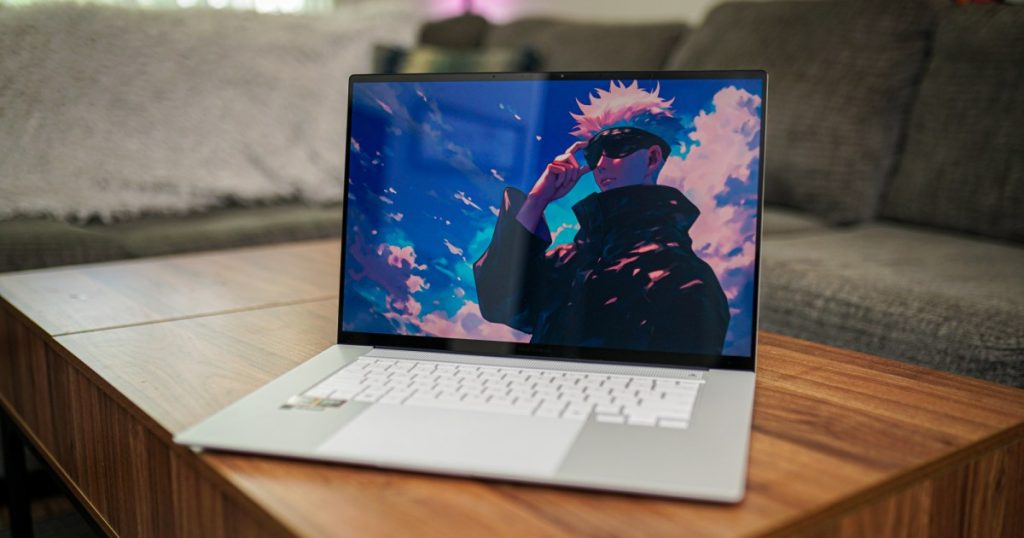AMD has recently released a new driver for its latest Ryzen AI 300 processors, introducing a feature called Variable Graphics Memory (VGM). VGM enables the integrated graphics to allocate up to 75% of the system memory as dedicated graphics memory, resulting in a significant performance boost in games. According to AMD, this feature not only enhances gaming performance but also enables previously unplayable titles to run smoothly.
The new Ryzen AI 300 processors are predominantly found in thin and light laptops like the Zenbook S 16, which are not specifically designed for gaming. Along with VGM, AMD has also activated its Fluid Motion Frames 2 (AFMF 2) feature for Ryzen AI 300 processors, demonstrating improved performance on the Zenbook S 16.
Guardians of the Galaxy stands out as a notable example, with AMD stating that VGM is necessary for the game to run. This is because certain games have fixed video memory requirements. By default, the integrated graphics on a Ryzen AI 300 processor only have a dedicated 512MB pool, causing issues or crashes in games that demand more memory. VGM resolves this problem.

While AFMF 2 contributes significantly to the performance gains, AMD showcased the Ryzen AI 9 HX 370 achieving close to or above 100 frames per second (fps) in less demanding games at 1080p.
Our testing of AFMF 2 reveals a substantial improvement over the original version. This feature works with nearly all games, offering enhanced image quality and stability compared to its predecessor. Additionally, AFMF 2 now supports OpenGL and Vulkan, allowing you to utilize it with a wide range of PC games.

Get your weekly breakdown of the technology behind PC gaming
Both AFMF 2 and VGM are currently available through a technical preview driver. This driver also includes support for the recently launched Warhammer 40K: Space Marines 2. As with any preview driver, there may be minor bugs, and AMD encourages users to report any issues encountered while using the preview driver.


